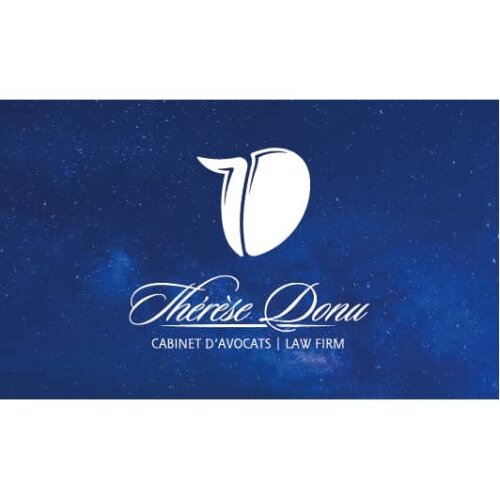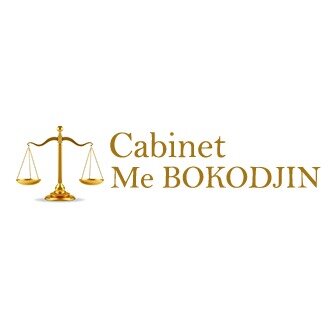Best Water Law Lawyers in Lomé
Share your needs with us, get contacted by law firms.
Free. Takes 2 min.
List of the best lawyers in Lomé, Togo
About Water Law in Lomé, Togo
Water law in Lomé, Togo, refers to the collection of rules and regulations that govern the rights, use, distribution, and management of water resources in the city and its surrounding areas. Given Lomé's rapid urbanization, access to clean and reliable water is a critical issue for both individuals and businesses. The regulation of water sources such as rivers, wells, public reservoirs, and the services provided by national water companies is overseen by governmental bodies to ensure sustainability, public health, and fair usage. Water law in Lomé is shaped by Togolese legislation, policy frameworks, and, increasingly, international agreements and standards guiding water usage and environmental protection.
Why You May Need a Lawyer
There are several situations where individuals, communities, or organizations might require the assistance of a water law lawyer in Lomé. Common scenarios include:
- Disputes over land and water rights, particularly where private wells, rivers, or public water supply systems are concerned
- Issues with water pollution affecting personal property, agriculture, or public health
- Challenges in obtaining or renewing permits for drilling wells or using large quantities of water for business or agricultural activities
- Conflicts arising from changes in water supply policies or interruptions in service from the national water company (Togolaise des Eaux)
- Matters involving damage or liability due to flooding, drainage problems, or faulty infrastructure
- Seeking compensation for harm caused by water-related incidents or contamination
- Advising on compliance with local, national, or regional water management laws and environmental requirements
A lawyer specialized in water law can help navigate these complex issues, represent your interests before administrative bodies or courts, and ensure your rights are protected under Togolese law.
Local Laws Overview
Togo’s water governance is based on a combination of national laws, local regulations, and sectoral policies. Key aspects relevant to water law in Lomé include:
- Public ownership of water resources: The state retains sovereignty over all major surface and groundwater sources, managing their use and allocation
- Permitting system: Extraction of water for non-domestic or commercial purposes often requires a government-issued permit
- Regulation of water service providers: Utility companies (such as the Société Togolaise des Eaux - TDE) are regulated regarding pricing, quality, and supply obligations
- Sanitation and pollution control: Strict rules are in place to prevent contamination of water sources from industrial, agricultural, or domestic waste
- Allocation priorities: Laws give priority to drinking water and essential household use, followed by agricultural and then industrial needs
- Community participation: Recent reforms encourage participatory approaches to water management, especially at the local or neighborhood level
Violations of water law may trigger administrative sanctions, fines, compensation orders, or, in severe cases, criminal proceedings. Attorneys are often essential in interpreting these rules and advocating on behalf of affected parties.
Frequently Asked Questions
What is water law and how does it apply to me in Lomé?
Water law refers to the set of legal norms governing the ownership, use, distribution, and protection of water resources in Lomé. It applies to all residents and entities who rely on water for personal, agricultural, or commercial activities.
Who is responsible for supplying water in Lomé?
The main provider is the Société Togolaise des Eaux (TDE), which is responsible for treating and distributing potable water in urban areas like Lomé. Rural water supply is often managed by local community groups or public agencies.
Do I need a permit to dig a well on my property?
Yes, in most cases, you must obtain a permit from the relevant municipal or governmental authority before drilling a new well, especially if the well will be used for more than personal domestic needs.
What should I do if my neighbor is polluting our shared water source?
You should first discuss the issue directly with your neighbor. If the problem persists, contact the local water authority or seek legal counsel to initiate formal complaints or legal action.
What are my rights if I experience frequent water cutoffs?
Consumers have the right to a reliable and adequate supply. If interruptions are frequent and unjustified, you may file a complaint with the TDE or the relevant regulatory body and may seek legal assistance if the issue is not resolved.
Can I be held liable for contaminating a waterway?
Yes, individuals and businesses can face fines, compensation claims, or criminal charges if found responsible for contaminating water sources in violation of Togolese law.
Are there special rules for business or industrial water use?
Yes, commercial and industrial water use is subject to stricter regulations and often requires special authorization, environmental impact assessments, and periodic reporting to authorities.
How is water usage prioritized during shortages in Lomé?
When shortages occur, priority is typically given to household consumption, followed by essential services, agriculture, and lastly, industrial users. These priorities are established by national policy and local decisions.
What recourse do I have if my property is damaged by flooding due to poor drainage?
You may have legal grounds to claim compensation from responsible parties, whether a neighbor, business, or government entity, especially if negligence or non-compliance with drainage regulations can be proven.
How can a lawyer help me in matters related to water law?
A water law attorney can explain your rights, assist with obtaining permits, file complaints, represent you in disputes, negotiate with authorities or other stakeholders, and help ensure legal compliance in water-related matters.
Additional Resources
For those seeking further information or assistance on water law issues in Lomé, the following resources can be particularly helpful:
- Ministry of Water and Village Hydraulics (Ministère de l'Eau et de l’Hydraulique Villageoise): The main government body responsible for water policy and regulation
- Société Togolaise des Eaux (TDE): The main water utility provider for Lomé and many other areas
- Local municipal water departments: For permits, local service issues, or community water management inquiries
- Environmental NGOs active in Togo: These can provide support, advocacy, and sometimes legal assistance for water-related community issues
- Bar Association of Togo (Ordre des Avocats du Togo): A source for finding qualified attorneys with expertise in water law
Next Steps
If you find yourself in a dispute or have questions about water law in Lomé, here are practical steps you can take:
- Document your issue, including dates, correspondence, and any evidence related to your case
- Contact the relevant authority, such as the TDE, municipal water department, or Ministry of Water, to seek clarification or file a complaint
- If your issue is not resolved through administrative channels, consult a qualified attorney experienced in water law
- Prepare to share all relevant documents and details with your lawyer so they can best advise you on your rights and possible next actions
- Stay informed about local water regulations and your responsibilities as a user to avoid legal complications in the future
Engaging a knowledgeable lawyer early can help address issues efficiently and protect your rights regarding water resources and usage in Lomé, Togo.
Lawzana helps you find the best lawyers and law firms in Lomé through a curated and pre-screened list of qualified legal professionals. Our platform offers rankings and detailed profiles of attorneys and law firms, allowing you to compare based on practice areas, including Water Law, experience, and client feedback.
Each profile includes a description of the firm's areas of practice, client reviews, team members and partners, year of establishment, spoken languages, office locations, contact information, social media presence, and any published articles or resources. Most firms on our platform speak English and are experienced in both local and international legal matters.
Get a quote from top-rated law firms in Lomé, Togo — quickly, securely, and without unnecessary hassle.
Disclaimer:
The information provided on this page is for general informational purposes only and does not constitute legal advice. While we strive to ensure the accuracy and relevance of the content, legal information may change over time, and interpretations of the law can vary. You should always consult with a qualified legal professional for advice specific to your situation.
We disclaim all liability for actions taken or not taken based on the content of this page. If you believe any information is incorrect or outdated, please contact us, and we will review and update it where appropriate.











